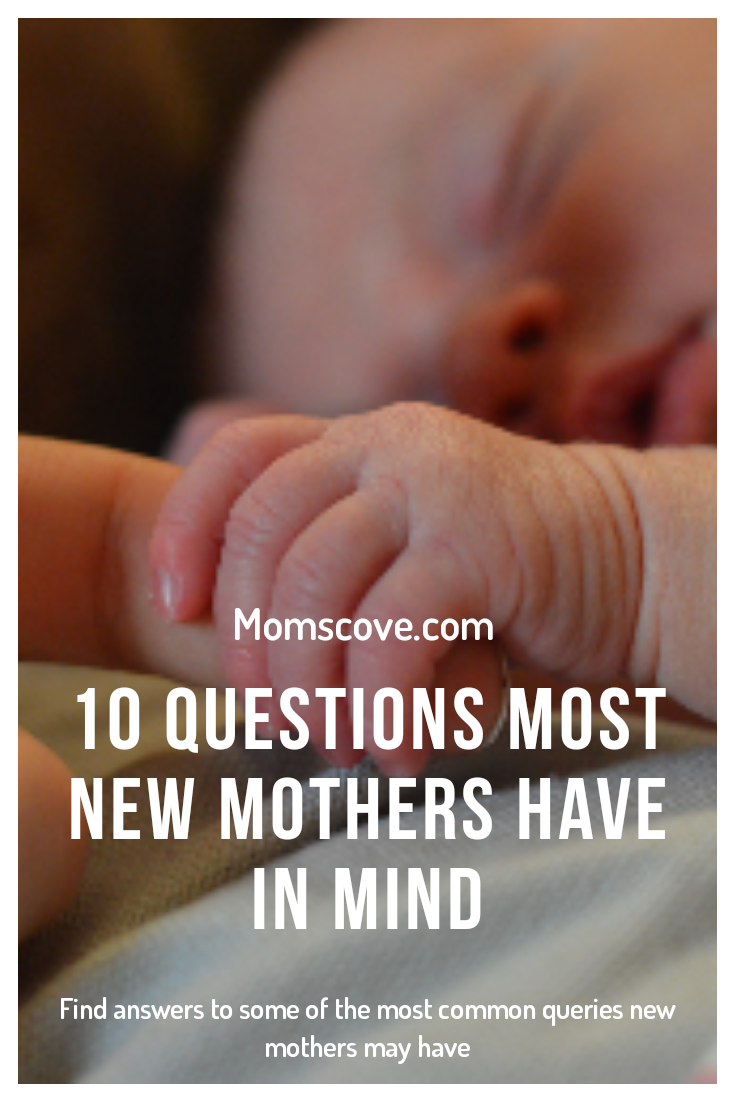
If you are reading this blog, probably you have a new baby and you are worried about something. So, let me begin by congratulating you first. It’s usual for new parents to have so many questions in mind. You might be wondering if your baby is normal? Is it normal for your baby to do whatever it does? I still remember the anxiety I felt during the first few days of motherhood. Here are a few common queries that new parents may have. Hope this list of baby question and answers clears some of your doubts.
1. Why is the baby’s poop green?
The first greenish stool of a baby is called meconium. This is formed from whatever the baby has ingested inside the mother’s womb-like, epithelial cells, mucus, amniotic fluid, etc. The dark green color is due to the high concentration of bile pigments. As the baby starts taking milk, the color of the stool changes from green to greenish-yellow which further changes to golden yellow. These transitions occur over the first week of life.
2. My baby keeps pooping frequently, is he okay?
The baby passes first meconium within 12 to 24 hours of birth. From 3rd to 4th-day baby passes greenish-yellow stool 7-8 times a day. This is absolutely normal and is not diarrhea. There is no reason to be alarmed. If your baby is passing stool much more than this and also not gaining weight adequately, he/she could be getting only foremilk. Talk to your pediatrician.

You may also want to read: 11 Normal Things In Newborn Babies That Trigger Concern In Parents
3. Why does my baby sleep all the time?
It is normal for the baby to sleep up to 18 to 20 hours a day or more following birth. The baby wakes up occasionally when hungry or when the nappy is wet and immediately goes back to sleep. They may also be difficult to wake up when fast asleep. There is no reason to worry as long as they look well & comfortable, they look pink, and are feeding well.
4. How often should I be feeding my baby?
A healthy baby can decide when to feed and ‘demands’ feeding when hungry. Whenever the baby is hungry he/she will wake up and would look active. Do not wait for the baby to start crying. Take the baby on your breast and the baby will start suckling and will usually go back to sleep once done. There is no need to feed the baby after a particular interval ‘by the clock’ and a normal, healthy baby will never ‘forget to feed’ while he/she is fast asleep.
Every baby is different. Adopting a by-the-clock feeding schedule may disrupt the baby’s sleep and feeding cycle and lead to unnecessary anxiety. However, if your baby is premature or is sick please follow your pediatrician’s advice.
5. Is my baby getting enough milk?
This is a very common question in the minds of new mothers and grandmothers alike. The fear of not getting enough milk is a reason for substantial anxiety among new parents. It is important to understand the steps of milk coming in. Immediately following birth, there may be apparently no milk when you try to express it. You need to put the baby on the breast as early as possible to let your body know that the baby has arrived and he/she needs milk. You would soon start producing a little amount of thick yellowish milk known as ‘colostrum’. Don’t get fooled by the amount as colostrum is 10 times more concentrated in terms of energy and has loads of goodness.
Do not Panic: continue feeding:
Continue putting the baby on breast frequently whenever the baby demands feed. Milk starts coming in gradually from the 2nd to the 3rd day, which is initially called transitional milk, and later becomes mature milk. While your baby may cry for so many reasons, monitoring the weight of your baby and the number of times he/she passes urine, is the best way to ascertain that your baby is getting enough milk.

keep a close eye
Your baby would lose up to 10% of birth weight initially till around 5 days. He/she would start gaining weight at about 30g/day to regain the birth weight around the 10th day. Your baby will pass his/her first urine within 48 hours of life and thereafter will pass urine that roughly corresponds to the day of life.
For example: if your baby is 3 days old, he/she passes urine 2-3 times a day, if 4 days then 3-4 times a day and at least 6 times in a day (24 hours) by the end of the first week. If your baby has lost more weight or has failed to gain weight as expected or is not passing urine enough times, then you must consult your pediatrician or lactation counselor. Do not jump to supplemental feed with infant formula straight away.
You may also want to read:
- 20 Common Breastfeeding Problems with Solutions for Stress-Free Nursing
- 6 Undeniable Benefits of Breastfeeding for Baby and Mother
6. When does the umbilical stump fall?
The umbilical stump begins to dry by the first 2-3 days and then it shrivels over the next few days and falls off by 1-2 weeks. It is important to keep the stump dry and not to apply any ointment or oil over it, in which case it may take longer to fall.
7. When can I give my baby the first bath?
Pediatricians would advise not to give a bath to the baby before discharge from the hospital. After birth as the baby is dried, just wiping the baby clean of any visible dirt or blood is enough. Your baby may have a cream-like substance over his/her body called vernix caseosa, which should not be vigorously cleaned off. It protects the skin and helps the baby maintain temperature. After discharge from the hospital, it is okay to just give the baby a quick sponge bath. you may delay dip-bath delayed until the umbilical stump has fallen off.
8. How many clothes do my baby need?
You need to keep babies warm as they can quickly lose heat and become cold even in warm tropical countries like India. It is best for you to dress them in the loose, uncomplicated type of dress, which can be changed regularly or which doesn’t interfere much with nappy change. Then, the baby can be wrapped in layers of cloth as required depending on the temperature. Be sure to cover the head with a cap. Remember to touch the feet of your baby now and then. If the baby’s feet feel colder than your hand, then your baby needs more layers, or make your room warmer.
However, sometimes they may get too warm and may get uncomfortable with all the clothing. Putting your hand in the baby’s armpit can allow you to understand if the baby is feeling too hot. If your baby’s armpit feels moist, you can remove a few of his/her clothing, as your baby might be feeling too warm. Keep touching the feet regularly to check that he is not getting cold.
9. Can I (mother) eat everything while breastfeeding?
Usually, there is no restriction of food that the mother can take while breastfeeding. Two to three cups of tea or coffee a day is fine but if you habitually take more than that, then you may want to cut down on that a bit. It’s best to avoid alcoholic beverages altogether but if you must, do not take more than one drink. Sometimes you may think that something you ate is causing a problem to the baby, that probably it must be something you have taken a few hours back. Few things like cow’s milk, egg, soy, nuts, etc. at times may cause problems. But don’t stop anything only by your hunch. Consult your pediatrician.
10. When can I start using diapers?
Traditionally cloth diapers were used for babies. But over last the few decades disposable diapers have gained popularity. The verdict is split and there is not enough evidence to argue either way. Grandparents are skeptical about it and think that new mothers use disposable diapers for their convenience and are not willing to work hard enough for their babies. But more and more new parents are switching to disposable diapers to make their and their baby’s life easier.
You can use cloth diapers from day 1, but the schedule of changing nappy becomes hectic as your baby gets few days old. Mind you, your baby may be passing urine up to 20 times a day and pooping another 5-6 times. So things can get hectic. you may use disposable absorbent diapers from day 1 as it has the advantage of keeping the baby dry for longer. Disposable diapers, however, can be costly in the long run and also leave a more environmental footprint.


Hope this addresses some of your concerns. I can assure you that despite your nervousness and anxiety, your baby is going to do just fine. This is a beautiful phase of parenthood and it will not last forever! These concerns and care will help you to develop a strong bond with your baby. So, welcome to parenthood and happy parenting!

Leave a Reply